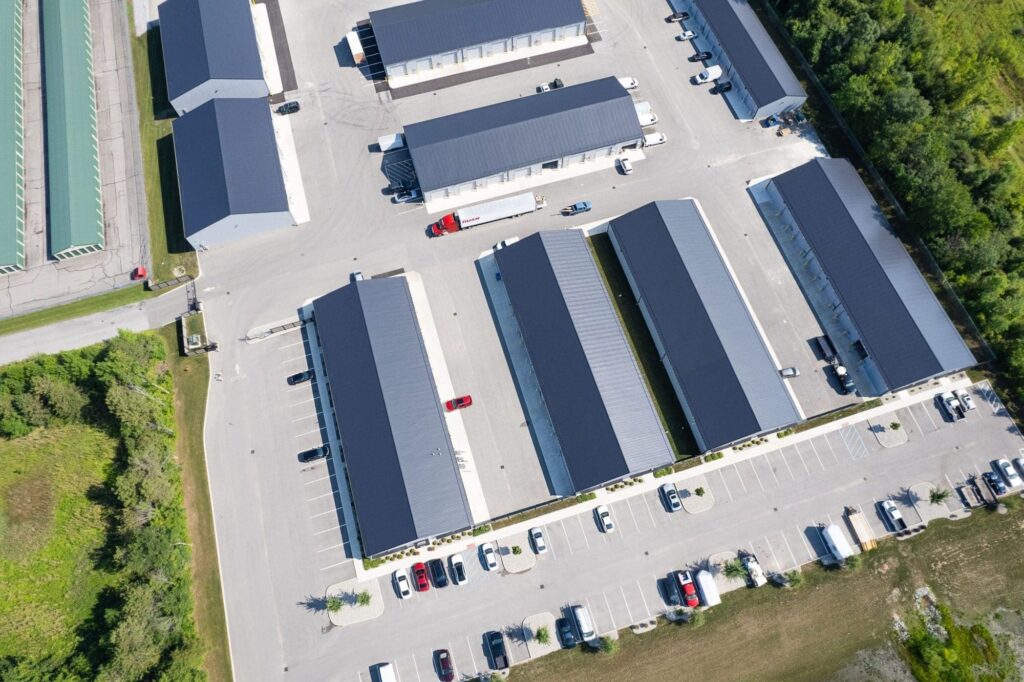As a startup or small business, choosing the right office environment is crucial but can also be quite challenging. Do you opt for a modern co-working space promising collaboration and networking? Or is a warehouse rental with flexible terms and scalability better suited for your company’s growth? There are many factors to weigh when deciding between these options. Overall, warehouse rentals tend to provide the unparalleled flexibility, affordability, and room to expand that fast-growing startups need.
Understanding the Basics of Space Management
Before diving into the comparative analysis, it is helpful to understand some key concepts around managing space for a business. Assessing your spatial needs, from storage to operations and beyond, is foundational when choosing real estate solutions.
Overview of Warehouse Rentals
Warehouse rentals provide customizable warehouse space combined with critical amenities needed for daily operations. For example, office suites adjoined to warehousing enable running a business alongside storing inventory, materials, and equipment. Amenities often included are free WiFi, shared reception staff, conference rooms, 24/7 building access, and more.
Leasing warehouse space generally involves shorter-term agreements, from month-to-month to 1-3-year contracts, allowing flexibility. Landlords tailor offerings to suit unique business requirements. Rental costs are also typically lower than other commercial real estate.
Read our guide on warehouse rentals to learn more.
Unpacking the Concept of Co-working Spaces
Unlike renting traditional office spaces, coworking spaces offer shared office environments housing multiple companies in one building. The appeal is promoting collaboration through common spaces and networking events. These spaces cater to innovative startups and freelancers rather than warehouse needs.
Amenities focus more on fostering productivity and community, like lounges, meeting rooms, cafes, workshops, etc. Memberships provide desk space with all-inclusive utilities and services. Since this is a shared office space, it is not ideal for those who require private office spaces.
Comparative Analysis Between Warehouse Rental and Co-working Spaces
There are some inherent differences between renting warehouse space versus joining a co-working community. Key areas to analyze are cost, flexibility, location/accessibility, and compatibility with your work needs.
Cost Aspect: Warehouse Rental vs. Co-working Spaces
Co-working spaces require paying a membership fee, often a fixed monthly cost, for amenities and desk space. Warehouse rentals enable customizing square footage needs, with rental costs scaling accordingly. With warehouse space, businesses only pay for required storage and operations capacity.
Startups fluctuate rapidly, making the flexible cost structure of warehousing appealing. However, those needing only desk space may find co-working memberships offer more cost predictability.
Flexibility and Scalability: How Do They Compare?
Warehouse rentals massively outshine co-working spaces regarding flexibility and scalability. Warehouses allow business owners to resize space month-to-month as inventory ebbs and flows or as the business grows and more storage space is needed. Most co-working spaces lock users into long-term agreements with static desk allotments. For high-growth startups, the adaptive nature of warehouse space makes it far more valuable.
Location and Accessibility: Which Option Offers More Convenience?
Co-working spaces focus on cities and metro downtowns to attract members. In contrast, warehouse rental facilities are situated near major highways, intersections, and transport hubs for optimal logistics access. The broad area coverage and geographic diffusion of warehouses provide startups with more location options when choosing space. For staff commuting to offices, warehouses can offer much higher accessibility.
Making the Right Choice: Factors to Consider
When deciding between warehouse rental versus co-working for your startup, weighing your options based on your specific business needs and constraints helps significantly.
Considering Your Business Needs and Goals
Conducting a thorough analysis of your startup’s core business and strategic direction is essential when evaluating office space options. First, examine your product and service offerings. What are you selling and delivering to customers? Understanding your company’s outputs informs necessary workspace configurations.
Next, analyze target customer demographics and purchasing behaviors. For a startup selling to consumers via e-commerce, warehouse capabilities become very relevant for order fulfillment, shipping and returns processing. Catering to corporate clients may require more meeting space.
Assess your 5-year vision and multi-year growth plan. Founders mapping out an ambitious expansion trajectory need workspace facilitating rapid scaling. Identifying must-hit sales, funding, and hiring milestones in the near term shapes workspace needs too.
Finally, consider any physical inventory stockpiling or equipment factors. Startups managing considerable on-hand product volumes or those performing hands-on assembly with machinery lean heavily towards requiring warehousing space with customized layouts.
Evaluating the Cost and Budget Limitations
Getting clarity on budget constraints gives a realistic sense of viable office space based on monthly affordability. Start by outlining expected operating expenses from securing space, including projected per square foot costs and fixed amenity fees. With warehouse rentals, tally needed storage, production, and office spaces with pricing models based on local industrial rental rates. For co-working spaces, multiply desk count by published monthly membership rates.
Next, align these cost forecasts with available startup funding and forecasts for revenue over the corresponding period. Having recently closed a major round of financing provides more latitude on expenses. However, even if you have ample funding, cost ceilings still exist. If your existing capital can’t sustain office space costs for at least 12-18 months, reassess plans to prevent overspending.
Acknowledging the Importance of Location and Accessibility
Optimal placement that minimizes commute times boosts productivity and worker satisfaction. Consider mapping employee locations, transport accessibility from spaces under review, and freight/logistics access needs based on your operations. Locating close to vendors and partners may also enable higher-touch relationships. The right location facilitates business growth instead of hindering it.
Future Trends: Warehouse Rental and Co-working Spaces
Both warehouse rentals and co-working spaces actively integrate cutting-edge technology to enhance experiences. Understanding their roadmaps helps in decision-making.
Innovations Shaping the Future of Warehouse Rentals
Many warehouse rental companies are focused on innovations that directly benefit tenants rather than flashy technology for its own sake. For example, upgrading to energy-efficient LED smart lighting provides well-lit, comfortable work environments inside units while lowering electricity bills. Installing more power outlets across warehouse spaces also enables easier charging of devices and tools.
Additionally, smart access technology like electric overhead doors brings conveniences facilitating tenant operations. The ability to securely enter units without leaving your vehicle saves time otherwise wasted in small inconveniences. Some warehouses even offer climate controlled spaces to protect inventory and equipment from weather fluctuations. Regulating temperature and humidity levels creates a comfortable space for office staff and extends the shelf life of your wares and materials.
Related: Is a climate controlled warehouse or self-storage unit better for your inventory? Read our warehouse rental vs. self-storage comparison.
Emerging Trends in the Co-working Spaces Sector
Co-working spaces continue to expand amenities to attract members, including state-of-the-art virtual reality creative studios, mindfulness meditation rooms, and video and podcast studios. Some providers are exploring decentralized metaverse networks allowing members to collaborate virtually in digital workspaces. Expect more premium features, luxury amenities, and high-tech offerings in the coming years.
Affordable, Flexible Office Space Options at RISE
For startups seeking warehouse rentals over co-working spaces, RISE Commercial District provides excellent facilities meeting all core business requirements. Well-equipped warehouse plans with scalable square footage options and flexible lease duration offer the versatility and affordability startups need. Streamline operations with a warehouse rental that offers excellent amenities, including free WiFi, private office space, a conference room and kitchenette, nightly cleaning, and 24/7 secure access. We can help you find the best office space to suit your unique business needs.
Contact RISE to get a free quote or learn more about our available spaces.
FAQs
What are the benefits of using a warehouse rental for a startup?
Warehouse rentals provide startups key benefits, including flexible leasing terms, scalable space as inventories expand, proximity to transport and logistics hubs, and affordable pricing structures.
Does a warehouse rental offer office features like WiFi and conference rooms?
Many warehouse rental facilities cater to startups and smaller companies by providing full-fledged office features alongside warehousing space. Expect offerings like free high-speed business WiFi, conference rooms, private office spaces, shared lobby staff, and other office amenities.
Can you adjust how much warehouse space you rent each month?
The flexible nature of warehouse rental facilities enables startups to tailor how much space they lease based on fluctuating business needs. Most warehouse landlords allow you to add additional space as your business grows.



